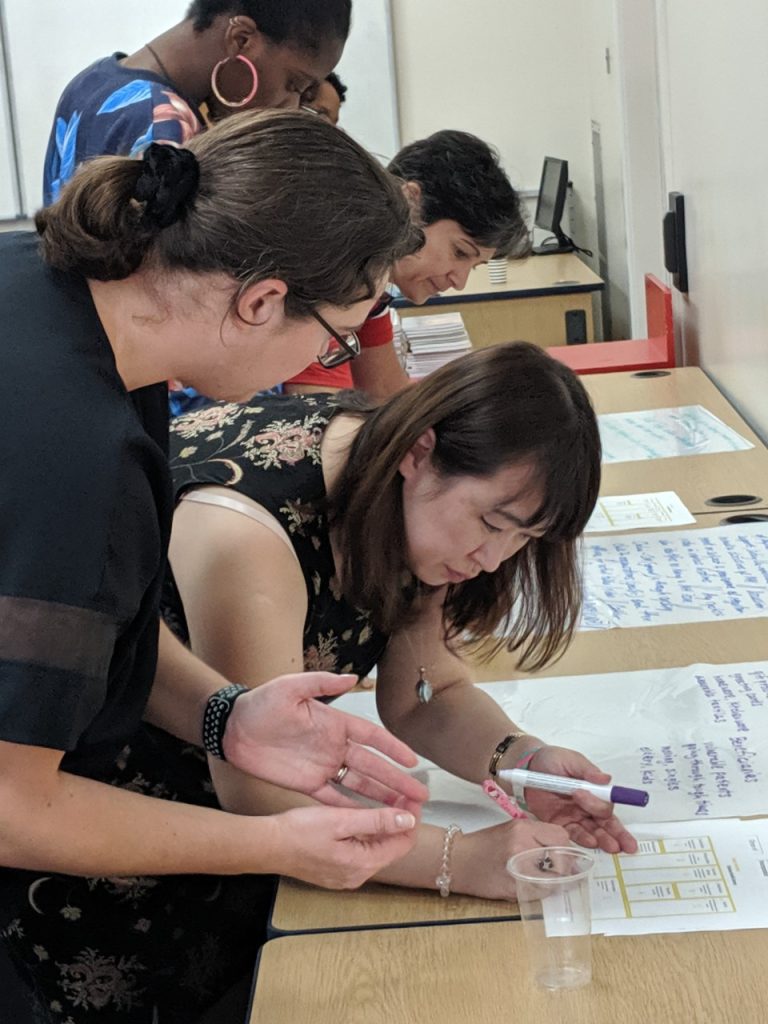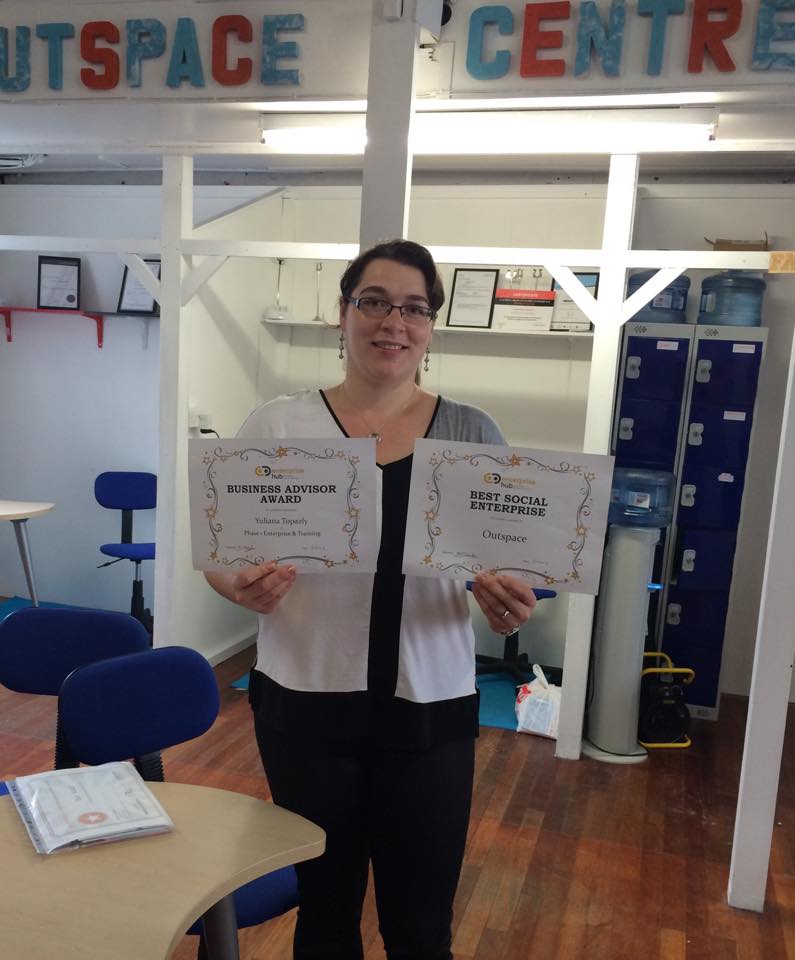Dr. Yuliana Topazly is an inspiring role model and mentor steadfast in seeing her Social Enterprise start-up My OutSpace through the daily challenges start-ups face. She has garnered much fulfilment from leading a social enterprise. “You can make a real difference by doing what you love.” Yuliana is a tremendous example of real-life management. She cautions: Your passion for your work should not overshadow the business realities of managing a business. Yuliana’s story serves to inspire women as she is part of a collective community of women in a women-empowered industry.

It has been an incredibly challenging couple years for businesses around the world. The COVID-19 pandemic impacted businesses and communities, as forced social distancing, self-isolation, wearing of face coverings and travel restrictions wreaked havoc on social situations, resulting in a sharp rise of social ills. As the world struggles to free itself from the grasp of these enforced restrictions, what is not talked about, however, is the key role played by social enterprises in the recovery. During the pandemic, social enterprises did not stop working, they did not close their doors; in fact, many went into overdrive and increased their capacity without any further funding to do so in place.
“With the majority of social enterprises and community projects run or managed by women, social enterprises have proven themselves to empower others, change lives and make substantive impact in their communities.”
In the UK it is estimated there are around 100,000 social enterprises which account for more than £60bn of UK GDP and employ ~1.5 million people (Social Enterprise, UK). It has been estimated that if the economy were dominated by social enterprises rather than shareholder dominated businesses, four million more people would be receiving the real living wage and £118bn of profits per annum would be reinvested back into society (The Business Desk, 2021). This would make such a difference to so many communities. With the majority of social enterprises and community projects run or managed by women, social enterprises have proven themselves to empower others, change lives and make substantive impact in their communities.
Ten years ago, I started my own social enterprise, My OutSpace (www.myoutspace.co.uk), which was born out of necessity when I had to leave my full-time job due to the inflexibility of my employer and an unwillingness to consider different work options. It was an eye-opening experience to learn that many other women and parents, many single, were exactly in the same position. An opportunity arose to engage and empower other parents, by providing a range of support services such as upskilling, offering access to workspace with childcare provisions and networking to support them during the transition. Many social enterprises are born out of necessity, emergent local needs, and personal experience; mine was no exception.
Social enterprises (SEs) are not just a fad — what is also remarkably interesting is that social enterprises introduce more products and services to the market and are more innovative when compared with commercial businesses. SE’s are more likely to invest in staff development with more than 80% investing in work and training for their staff, compared to 47% of SMEs (Social Enterprise UK, 2021).

“Social Value is a means to create additional social economic and environmental well-being[…]”
The UK Government is seeing the value. With the introduction of the Social Act and Social Value Acts, the government is finally realising the unique challenges faced by social enterprises and the need for alternative types of support. Social Value is a means to create additional social economic and environmental well-being above and beyond the ‘core value of the good services or work’ (Social Enterprise, UK). This will help SEs to access a wider range of opportunities.
We are at the nascent stages of the social enterprise journey, and if businesses and government prioritise contracts to those businesses which generate the highest economic, social and environmental added value, it will incentivise new models of business (Social Enterprise, UK). Building a Social Value Economy will not only require changes to existing businesses but will build new businesses and enable scaling up of existing SMEs. We all can influence and drive the change so many communities desperately need in the current environment.
If you are thinking of starting a social enterprise, do not hesitate: the social landscape is dynamic and keeps on giving. The Government has awakened to the unique support required and there is a growing number of people willing to give up their time to lend a hand. In addition, there is a growing number of social enterprise networks and forums, and many local councils have dedicated social enterprise support.
Running a social enterprise can be extremely rewarding, you can make a real difference while doing something you love. However, beware, passion about your work should not overshadow the commercial realities of running a business. Many social entrepreneurs make the mistake of taking their eyes off the financial ball (I learned the hard way…). In closing, always remember:
- Be on the constant lookout for emergent social needs
- Seek professional advice in planning your social venture
- Have a business continuity plan in place
- Build partnerships (local councils, community civic groups, existing SEs)
- Don’t rely on one source of income (e.g., grants); make sure you have different revenue streams
- Keep an eye on cash flow (‘Cash is King’ in any business!)
- Keep records, track and communicate your impact
- Take advantage of Social Act and Social Value and do not be afraid to ask for help!!!
- Invest in your team
- Don’t be afraid to expand into other social areas.
Social Enterprises have a critical role to play in the continuing recovery of the global economy — be a part of this exciting way to take control of your career whilst helping others!

An Award-winning Social Entrepreneur, Enterprise Educator and experienced Business Mentor

